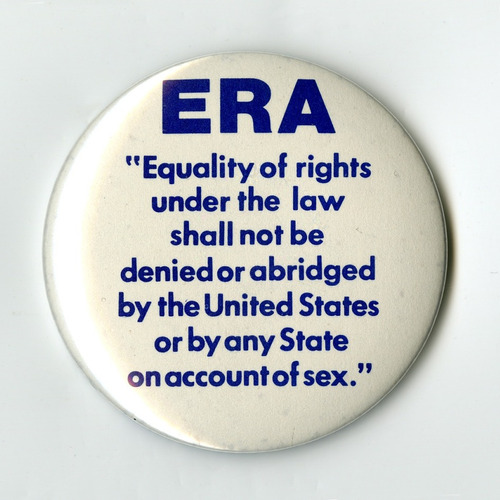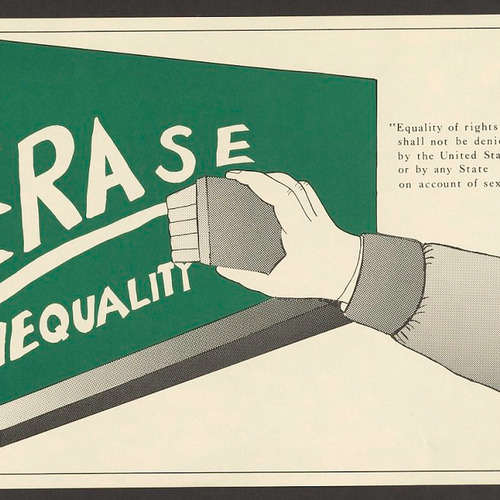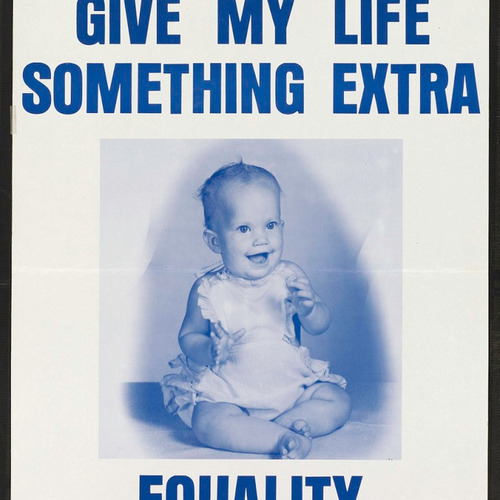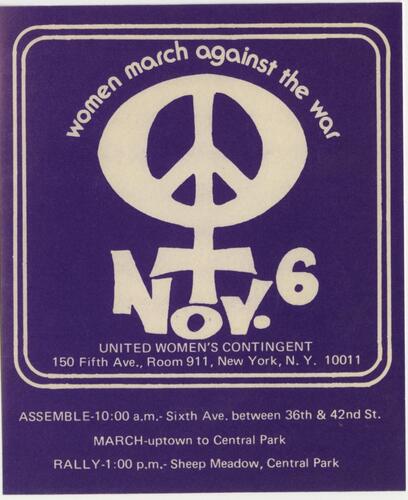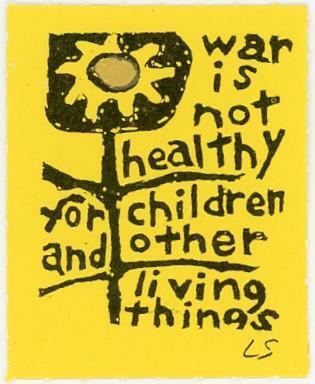1970s: Roe v. Wade and Conservative Homophobia
The queer and feminist activism done by those in the 1950s and 1960s continued to inspire new generations of activists and pushed forward the fight for equality in the 1970s.
With the availability of birth control starting in the 1960s and women being more involved in the workforce, many women were having premartial sex and experiencing much more liberation now, especially in their sex lives. But women still experienced discrimination in home life and in the workplace. More and more feminists were partaking in social and political events, fighting for equality in society and work.
Equal Rights Amendment (ERA)
The Equal Rights Amendment, or ERA, was designed to guarantee the protection of women against sexual discrimination. In 1972, after passing both of the houses of Congress, it was sent to states for ratificiation. But, it failed to meet the minimum number of 38 for state ratifications by 1982 and was not adopted as an amendment to the Constitution. 2 years ago, in 2020, Virginia ratified the ERA, becoming the 38th state. But as of now, it still has not become part of the Constitution.
The Vietnam War and Feminism
The Vietnam War lasted from November 1, 1955 to April 30, 1975. While there were many supporters of the war, there were also many anti-war activists who talked about issues ranging from how the media justified American imperialist actions to the politics involved in the Vietnam War to how women were being affected by it as well. One author writes
"In the wake of the women’s movement, an atmosphere of social and political backlash against women prevails...Against this backdrop, the Vietnam war is being reconstructed as a site where white American manhood—figuratively as well as literally wounded during the war and assaulted by the women’s movement for twenty years—can reassert its dominance in the social hierarchy. Using Vietnam as the stage and the veteran as the main character, popular discourse on the war is desperately attempting to reclaim masculine power" (Smith 116).
Women's groups like the
Roe v. Wade
Roe v. Wade was a landmark case for abortion rights in America for women in the 1970s. Women were able to receive abortions and have a better say in their reproductive rights. Before this case, abortion was legal until the late 19th century. In 1970, a lawsuit was filed on the behalf of "Jane Roe", who was actually Norma McCorvey, against the district attorney of Dallas County who was Henry Wade. She wanted an abortion for an unwanted pregnancy but the Texas abortion law at the time only applied to a woman whose life was in danger. In 1973, the Supreme Court legalized abortion until the case was overturned in 2022. The video below gives more information about the legal history of this case:
Conservative Homophobia in the 70s
A well-known homophobe and anti-gay activist during this time period was Anita Bryant. Before her anti-LGBTQ+ activism, she was an American singer who had four "Top 40" hits in the 50s and 60s and was a brand ambassador for the Florida Citrus Commission from 1969 to 1980 (note: In her Florida orange juice commercials, Anita says "A day without orange juice is like a day without sunshine!" It's interesting that a famous banner in the Gay Freedom Day Parade in San Francisco in 1979 changed this motto to say "A day without lesbians is like a day without sunshine!").
Anita was a well-known leader of the "Save Our Children" campaign, which painted LGBTQ+ people to be immoral predators towards children (this idea is still prevalent in society today, with recently drag queens having been painted as child molesters and abusers). She said that "The recruitment of our children is absolutely necessary for the survival and growth of homosexuality," she declared, "for since homosexuals cannot reproduce, they must recruit, must freshen their ranks" (Endres 2015). She also fought against a Dade County ordinance in 1977 that banned discrimination on the basis of one's sexual orientation. LGBTQ+ people fought against her hate. They boycotted orange juice and stopped serving it in gay bars and clubs and sold t-shirts, buttons, and other merchandise with different slogans and phrases such as "A day without human rights is like a day without sunshine" and "We don't want your children, Anita. We want your husband" (Endres 2015).
One famous moment in Anita's career was when she was hit in the face by a pie thrown by gay activist Tom Higgins on national television in 1977:


(source)
Over time, Anita was dropped by many sponsors and was only known as the bigoted homophobe and nothing else. One ironic thing to come about all of this is that Anita has a bisexual granddaughter who is marrying a woman. And yes, Anita is still homophobic and prays that she will find a husband.
